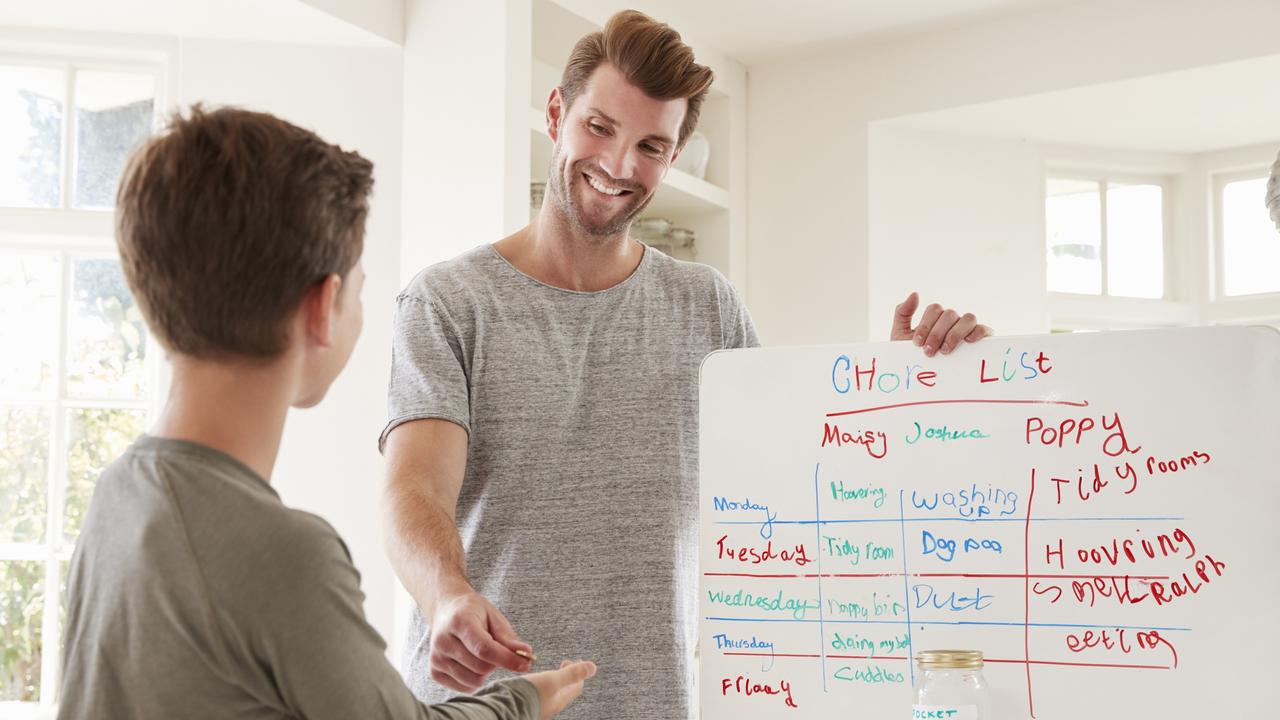How to get your kids out of the house and into the property market
There are a few tactics parents can use to ensure their kids are motivated and in a good position to jump onto the property ladder. See what the experts have to say.

Whether they’ve got two under two or a 20-year-old about to fly the coop, most parents want their children to make the most of life.
However, the 2021 Australian Bureau of Statistics Census found more than 456,540 Australians aged between 25 and 34 still live with their parents, which was almost 17 per cent higher than in 2016.
With this in mind, there are a few tactics parents can use to ensure their kids are motivated and in a good position to leave the nest before they’re 35.
RELATED: Almost half of Aussie parents fear kids will never afford a home

GIFT IT TO THEM
Property Home Base founder and flat-fee buyer’s agent Julie DeBondt-Barker said “gifting” was a good option for parents with the cash or equity in their home to hand over to their children to buy a house.
“Sometimes wills need to be altered to keep things in balance if there are other siblings involved,” Ms DeBondt-Barker said.
Despite this, Mortgage Choice broker David Thurmond advised against parents giving kids a cash gift.
Instead, he said it was more important to teach children with part-time jobs how to set aside a portion of their pay cheque into savings and avoid getting into the trap of credit cards and ‘buy now, pay later’ platforms like Afterpay.
“I really think it starts from the home,” Mr Thurmond said.
“When the parents are switched on financially, the kids will be too and they’ll learn the ability to save money and not spend it as soon as they’ve earned it.”

MAKE IT A GUARANTEE
If parents are wanting to help their children buy their first home, going guarantor is another option but with a bit more risk involved.
The guarantor process is one where a family member, usually a parent, provides additional security for a borrower’s loan to allow them to get onto the property ladder with little to no deposit. This means the guarantor must make payments on the loan if the borrower is unable to.
“Parents going in as a guarantor works well, but the parents need to feel 100 per cent confident that the kids will pay them back,” Ms DeBondt-Barker said.
Mr Thurmond added that in a falling property market a guarantor might be needed for a longer period of time while waiting for the home to gain equity, which was a risk they needed to consider.

START GOOD HABITS
Another option could be charging children rent when they reach a certain age and are still living at home.
That can teach them the value of financial independence and you could even put this rent towards a savings account for a deposit when they’re ready to buy a home. Mr Thurmond said he planned to do this with his own children.
“I think that oftentimes we become quite private with our finances, we don’t talk to friends or family and that trickles down to not talking to our kids about it,” he added.
“It’s important to have that conversation about what utility bills, council rates, body corporate fees, insurance and all the extras above mortgage payments cost, and making them more aware of general management of money.”
Ms DeBondt-Barker also noted it was important to involve your children in things like paying bills, budget setting for shopping, and explaining things like interest rates, home loans and the ramifications of credit cards.
If you’re not particularly financially savvy yourself, it’s also worth doing your own research to pass on information to your kids.

SET HOMEWORK
Both experts said finance books and podcasts, such as Scott Pape’s The Barefoot Investor and George Samuel Clason’s The Richest Man in Babylon were a good place to start — there’s even a Barefoot Kids title.
They added that learning together with your children, even about something as seemingly dull as finance, could be a good bonding activity. And many parents might even pick up a trick or two for their own finances.
TIPS TO GET YOUR KIDS PSYCHED ABOUT SAVING

BE A GOOD ROLE MODEL
Provide a good financial role model for your children. Children learn from those around them and will copy what their parents do. Parents can instil good financial skills by demonstrating these skills to their children.
HARD WORK PAYS OFF
Demonstrate to your kids that money comes from work. If you give you children pocket money, have this connected to chores or jobs that they have to do to earn it.
TEACH ‘EM YOUNG
Help children to learn the value of money and how to manage their own finances as soon as possible. This can include teaching them about how to budget, give them some money and get them to control and decide what to spend it on. For example, if the family is going on holiday, involve them in the budgeting decisions by providing parameters about what can be spent on what, and involve them in the decision.
AVOID HAND OUTS
Giving no strings attached lump sum handouts to your kids can be problematic. If your kids ask for money, work out a pay back scheme, or a trade off. (i.e. that they do something for you in return).
Source: Glen Hosking, clinical psychologist and associate professor at La Trobe University School of Psychology and Public Health
Sign up to the Herald Sun Weekly Real Estate Update. Click here to get the latest Victorian property market news delivered direct to your inbox.
MORE: Gisborne South property where Delta Goodrem, John Butler, Tina Arena recorded awaits new owner
1882-built Coburg gem that used to be a Pentridge prison halfway house boasts Victorian splendour
The Delbridge House: heritage mid-century home from Miss Fisher’s Murder Mysteries for sale
emily.holgate@news.com.au
Originally published as How to get your kids out of the house and into the property market



